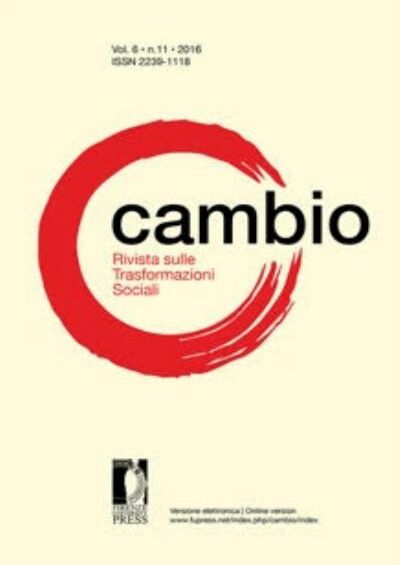This call for papers aims to collect theoretical or empirical contributions on the subject of informality with a multidisciplinary approach that allows to analyse this phenomenon through different but complementary perspectives, such as sociology, philosophy, cultural anthropology, history and economy.
On the theoretical level, we call for contributions that explore the analytical status of the concept of the informal sector and informality, in light of transformations within contemporary capitalism, overcoming some interpretative traps such as the idea of a “double value” of the informal sector (backward and exploitation vs innovation and growth) which forces a dichotomous approach, unable to see the multidimensionality of an ambivalent, redundant and polysemic phenomenon. We welcome reflections on the evolution of this concept in relation to the wide literature of the seventies and eighties, to show breakaways and continuity, still too underestimated. We welcome analyses about the relationship between the informal sector, market and economy, capable to show theoretical advances with respect to the idea of informality as “other market” and/or “other economy”.
On the empirical level, we invite authors to reflect on the following questions:
- The ambiguities of the new and old precarious working figures such as self-employed, atypical workers, new service workers in the cooperative sector, platform workers, voluntary workers and free workers. We want to explore that grey area of informality in which the boundary between gratuitousness and marketability becomes uncertain, creating new forms of exploitation, both direct and speculative.
- The role of informality in the reconfiguration of territorial welfare, paying particular attention to employment in the third sector and voluntary work.
- The contradictions linked to “bricolage” between marketing needs and ethical urgencies within the capitalist production and distribution networks. In this space we can see, for example, the regulatory impacts of certifications for quality standards such as PDO or PGI, the conventionalization processes of organic production and, in general, the formalization of consumer networks -and/or agri-food chains- which are born in informal contexts or based on specific ethical conditions and subsequently become market oriented.
- The bottom up initiatives that underlying local economic circuits based on proximity, reciprocity and “moral” economies, for example experiences of self-organization and co-production, time banks, complementary currencies, community cooperatives, ethical supply chains and sustainable production creating an alliance between producers, consumers and workers.
- The impacts of the COVID-19 pandemic both in micro terms, i.e. those small informal adjustments that allowed life and work to continue despite the emergency, and in macro terms, i.e. the accelerations towards processes of informalisation of economy and the scenarios that will arise from it.
Please click here (ENG – ITA) to read the call for papers or visit our CALL FOR PAPERS SECTION

